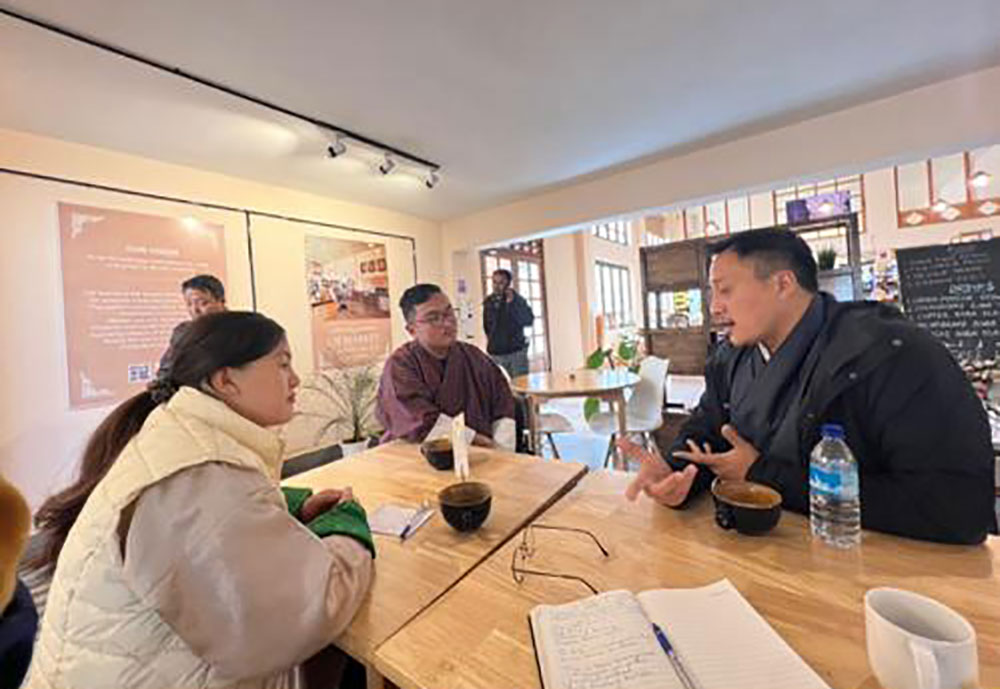Chhimi Dema
Plastic and paper waste are a growing concern in the country.
According to the National Statistics Bureau’s 2020 survey, plastic and paper waste comprise 17.1 and 15.8 percent respectively in Bhutan.
To manage plastic waste in the country, Gross International Nature, an environmental conservation organisation, is working on producing UR (useful recycled) bricks that use plastic waste as a raw material.
The company’s founder, Tshering Lhamo, said that the eco-friendly project will help with preventing air pollution and reducing the amount of plastic waste from being incinerated and dumped in landfills.
She said that the UR bricks and tiles are natural insulators, lightweight, and durable.
Gross International Nature was selected among four other start-ups for a programme called Climate Action4Clean Air, organised by the International Centre for Integrated Mountain Development (ICIMOD) in collaboration with the Institute for Learning Solutions in Bhutan and Antarprerana Pvt. Ltd in Nepal.
The Climate Action4Clean Air (CA4CA) programme called enterprises, start-ups, and organisations from Bhutan and Nepal to share innovations that mitigate air pollution. The programme ends in March.
Tshering Lhamo said that the programme helped her company identify specific customers, develop effective branding strategies, create a budget plan, and integrate organisational, financial, technological, and reputation resilience.
“Open incineration of plastic (even in small amounts) releases furans, dioxins, and other harmful particulate matter,” Tshering Lhamo said.
The company aspires to prevent the entry and open burning of 50 tonnes of plastic each week, from the five pilot communities in Thimphu, in the Memelakha landfill by recycling it into UR Bricks.
Druk Peci (pencil) is another participant of the CA4CA programme that produces three types of pencils: graphite, seed, and coloured pencils, using waste paper.
The seed pencil can be planted after use and it can grow flowers, herbs, vegetables, and spruce trees, depending on what seed is inside the end of the pencil.
Sonam Tshering, the founder of Druk Peci, said that using paper to make pencils reduces waste, and saves trees from being manufactured into wooden pencils.
“Starting an enterprise like this is challenging when the market is flooded with imported products,” Sonam Tshering said.
By using waste paper that is otherwise burned or disposed of, he said, the company is reducing paper waste and air pollution.
The participants were given classes from field experts on sales, branding and marketing, motivational talks, mentorship programme, and financial support of USD 1,200.
ICIMOD’s enterprise and value chain specialist, Anu Joshi Shrestha, said that ICIMOD seeks to foster an environment to develop enterprise-friendly viable air pollution solutions by mobilizing youth to develop business solutions to respond to air pollution impacts on environment and society.
She said: “We have supported start-ups to design solutions and develop their business proposition in a way that they present themselves as green entrepreneurs advocating climate action for clean air.”
Deki Natural Dyes, an eco-friendly social enterprise dealing with natural dyes and organic yarns; Zamin Friends Forever, a company producing reusable pads, panty liners, breast pads, and masks); and Zhiwa Food producing plant-based meat substitutes were participants of the programme.
Institute for Learning Solutions’ founder Kesang Om said that the programme aimed to support entrepreneurs, strengthen their business solutions and innovations towards mitigating air pollution.
“The goal of the endeavour is to create enabling ecosystems to combat air pollution by developing business-specific solutions that increase system efficiency while lowering emissions and pollutants,” she said.


